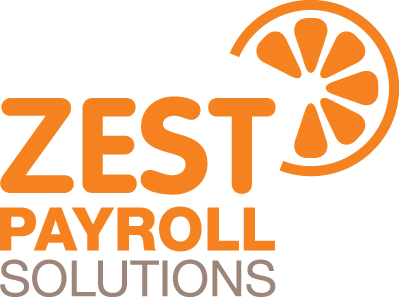Information for Parents Employing a Nanny
 Thanks to the lovelies at Zest Payroll, we have all the info you need if you are thinking of employing a nanny.
Thanks to the lovelies at Zest Payroll, we have all the info you need if you are thinking of employing a nanny.
It’s not simple, let me tell you, but with the guidance of Zest Payroll, you can read up on everything you need to know before becoming an employer!
Becoming an Employer
If you are paying your nanny £102 or more a week / £442 or more a month, or they have another job along side their post with you, you must register with HMRC as an Employer and make PAYE (tax and national insurance (NI)) payments if they apply. Nannies do not meet the HMRC criteria for being self employed.
You can register as an Employer via email on the HMRC website here. For PAYE purposes, you are classed as an individual and will need to complete the “Sole Trader” section.
If you pay your nanny below £160 per week or £700 per month, a simplified PAYE scheme applies.
As well as registering for a PAYE scheme, you must also register for online PAYE filing, to submit in-year forms (such as a P45 if your nanny leaves) and the all important end of year return at the end of the tax year.
Register for PAYE Online here.
Employer responsibilities
As an Employer, legally you must:
· Give your nanny a contract of employment.
· Provide a payslip for your nanny with every payment.
· Provide your nanny with a P60 at the end of the tax year and sumbit an end of year return (P35) to HMRC online with these details.
· Make PAYE payments to HMRC (these include the tax and national insurance deducted from your nanny’s wages and NI contributions incurred as an employer).
· Provide a P45 if the nanny leaves your employment.
· Provide statutory payments and holiday entitlements.
Paying PAYE
As an Employer, you are responsible for making deductions of tax and National Insurance from your nanny’s payments, and also, making an Employer National Insurance contribution too.
PAYE should be paid to HMRC on a monthly basis if the total exceeds £1,500, or on a quarterly basis if it is less than this.
Payments can be made via online/telephone banking, direct debit, at a post office or by post. For more information click here.
Net or Gross Wage?
Please be aware that agreeing a net wage with your nanny could seriously increase the costs to you as an employer.
When you agree a net wage, you also have to cover the nanny’s tax and NI contributions as well as your own NI contributions as an employer.
Any changes in your nanny’s tax coding could increase your costs dramatically. It is always best to agree a gross wage with your nanny from the start.
Statutory Payments & Entitlements
Holiday Pay
? All employees are entitled to 5.6 weeks paid holiday (for someone working 5 days a week this totals 28 days, and for those working less than 4 it is pro rata)
? The 8 bank holidays in the UK can be included in this.
? Holiday entitlement builds from the first day of employment.
? If the employee leaves and has not taken the holiday they were entitled to, they must be paid for it instead.
National Minimum Wage (NMW)
Employees must be paid at least the National Minimum Wage which is dependant on age.
The current *NMW rates until October 2012 are:
· 21+ £6.08
· 18 – 21 £4.98
· 16 & 17 £3.68
*The NMW does not usually apply to a nanny who lives with you as part of the family
Statutory Sick Pay (SSP)
? If you pay your employee £102+ per week or £442+ per month (before deductions) and they are sick for 4 consecutive working days or more, you should pay Statutory Sick Pay (SSP).
? SSP is paid from the 4th day of sickness. The first 3 days are known as “waiting days.”
? Employees can “self certify” for the first week of sickness, either by informing you by phone or in writing. They can also complete a “Employees Statement of Sickness” from their doctor’s surgery. These can also be downloaded from the HM Revenue & Customs website.
? From the second week of sickness, a doctor’s certificate should be obtained to ensure that SSP can be paid.
? SSP is paid at a weekly rate of £81.60.
? You could be entitled to small employer’s relief and recover some of the SSP you have paid. If the monthly total of SSP is greater than 13% of the total National Insurance you owe for the same month, the difference can be claimed back.
Maternity Leave
? All pregnant employees are entitled to Maternity Leave, regardless of how long they have been employed by you or how much they earn.
? Maternity leave entitlement is 52 weeks.
? All pregnant employees are entitled to paid time off for antenatal care.
? Your employee can start her maternity leave up to 11 weeks before the week the baby is due or work right up until the baby is born. If she is sick with a pregnancy related illness during the 4 weeks before the baby is due, maternity leave should start then.
? It is unlawful to treat a woman less favourably due to pregnancy or maternity leave.
Statutory Maternity Pay (SMP)
? If you pay your employee £102+ per week or £442+ per month (before deductions) and she becomes pregnant while in your employment, she must be paid Statutory Maternity Pay (SMP).
? SMP is paid for 39 weeks from the start of her maternity leave.
? The current rate for SMP is: 6 weeks at 90% of average earnings (over a set period)
Followed by 33 weeks at either:
£128.73 per week OR 90% of your employee’s average earnings (over a set period) if this is less than £128.73 per week.
? Your employee must provide you with medical evidence that she is expecting a baby if she is to receive SMP. This comes in the form MATB1 which is issued by her midwife or doctor.
As well as this, she must also inform you in writing that she is pregnant, the date the baby is due and when she intends to start her maternity leave. This needs to be with you during or before the 15th week before the baby is due.
? Within 28 days of receiving your employee’s notification that she is pregnant, you must acknowledge the details in writing and state the date which she would be due to return.
? If your employee leaves you after the 15th week before the baby is due, you still have to pay her all of her SMP entitlement.
? SMP is subject to tax and National Insurance in the same way as normal wages.
? As a small employer you will be compensated for all of the SMP you have paid and qualify for an additional 4.5%.
? Advance funding from HM Revenue & Customs for SMP payments is available in some cases.
Can I get help with the costs of employing a nanny?
If your nanny is registered with Ofsted, you may be entitled to help with the childcare costs in the form of Childcare vouchers from your employer of the Childcare element of Working Tax Credits.
For more information, please go here.
Information provided by www.zestpayroll.co.uk/nanny-payroll January 2012
 Thanks to the lovelies at Zest Payroll, we have all the info you need if you are thinking of employing a nanny.
Thanks to the lovelies at Zest Payroll, we have all the info you need if you are thinking of employing a nanny. 



Recent comments